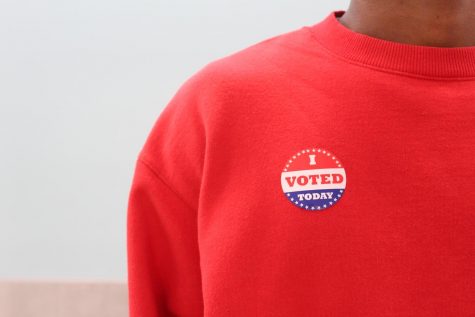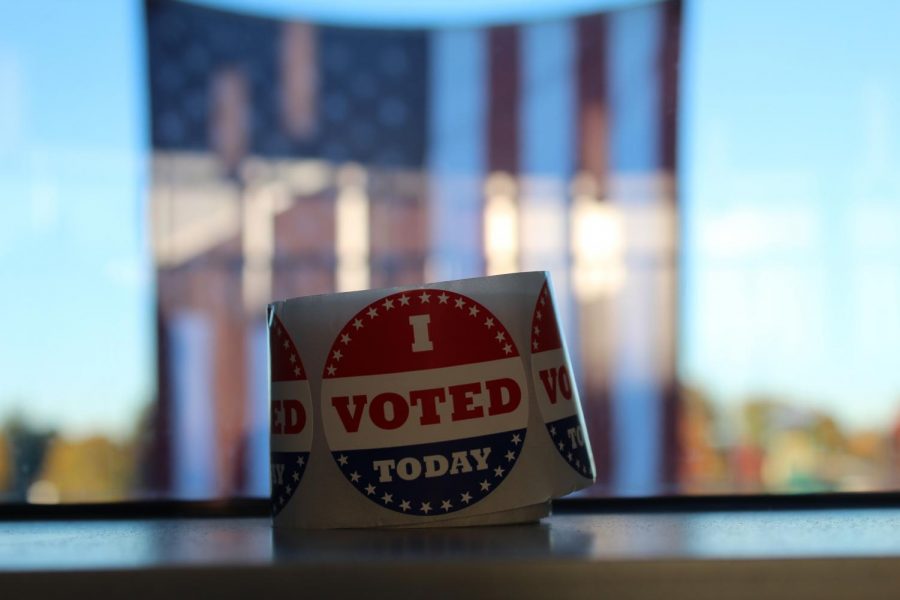The Ballot Questions Explained
Massachusetts citizens will vote on three issues directly on November 6th, here’s what they are all about.
A mock election for the November 6th midterm elections will be held Thursday
October 31, 2018
The three Massachusetts Ballot Questions for 2018 are causing some controversy as they involve many serious issues that affect a wide spectrum of citizens. The questions have a variety of topics such as nursing in hospitals, the rights of citizens and corporations, and the discrimination of transgender individuals in a public community. Many people make poor decisions on these topics due to ignorance and it is the duty of the young to make sure they do not make the same mistakes when they come of age to vote. The first step is educating yourself; what do the ballot questions mean?
The first ballot question is by far the most controversial. According to the Secretary of Massachusetts’ website the first ballot questions states, “This proposed law would limit how many patients could be assigned to each registered nurse in Massachusetts hospitals and certain other health care facilities… The proposed law would require a covered facility to comply with the patient assignment limits without reducing its level of nursing, service, maintenance, clerical, professional, and other staff.” Now this is a vague statement chosen out of a long paragraph of high level vocabulary and syntax. To simplify in a way that everyone can understand, not just government officials and college english majors, this law would set an official limit to how many patients registered nurses can have at a time. The limit would vary for the different types of patients and levels of nursing in order to be most effective. For example, a nurse can have up to 5 non-urgent, stable patients but they can only have one patient who is actively in labor for the safety of the patient.
A “yes” to this question would mean that you support the limit of patients for nurses in hospitals and other health facilities in order to prevent them from an overflow of patients and possibly less effective service due to stress and an overwhelming environment.
A “no” to this questions would mean that you do not think that there should be a limit on the amount of patients a nurse can care for in hospitals and other health facilities because you do not agree with the number limited, you think that smaller hospitals would be affected in a negative way, or because you feel that a change does not have to take place in hospitals and other health facilities.
The second ballot question has to do with the representation of corporations in comparison to citizens. According to the same reliable source, “This proposed law would create a citizens commission to consider and recommend potential amendments to the United States Constitution to establish that corporations do not have the same Constitutional rights as human beings and that campaign contributions and expenditures may be regulated.” This means that if the law passes, Massachusetts’ top officials would together appoint people to the commission of 15 people who would investigate the campaign finance system (political campaigns for offices) and deal with the recommendation of a constitutional amendment that would repeal Citizens United, which was a court case that ruled people have the same rights as corporations.
A “yes” vote to this question would mean that you are in support of a citizens commission to advance in the making of an amendment in order to limit the influence of money in all government elections and that you believe companies should not hold the same rights as humans.
A “no” vote would mean that you are not in support for such a commission to be created and potentially feel that corporations have the same rights as humans when it comes to donating money towards political campaigns.
And last, the third ballot question deals with the addition of transgender individuals to the list of communities that citizens and companies are prohibited to discriminate against in public places. According to the Secretary of Massachusetts the law would add, “gender identity to the list of prohibited grounds for discrimination in places of public accommodation, resort, or amusement. Such grounds also include race, color, religious creed, national origin, sex, disability, and ancestry.” The law currently in place upholds these calls for prohibition of discrimination and the question on the ballot is whether or not the law remains the same or is repealed.
A “yes” vote would mean that you wish to keep the current law in place regarding said prohibition of discrimination of transgenders in public accommodations.
A “no” vote would mean that you would like to repeal this law and that you do not feel discrimination against transgenders in public accommodations should be prohibited by law.
Now that you are better educated on the possible laws that will be passed or repealed, where do you stand? Do you feel more obligated to go out and vote?

.



